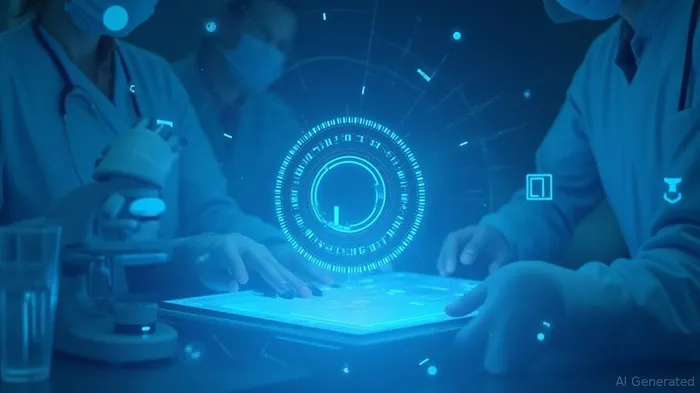IOTA's decentralized AI system enables 96% accurate disease detection in healthcare without compromising data privacy.
IOTA’s infrastructure has enabled the development of a secure AI system for healthcare that ensures sensitive patient data remains protected while achieving 96% accuracy in disease detection. The system leverages IOTA’s Tangle—a decentralized data layer—and IPFS (InterPlanetary File System) to allow multiple organizations to collaboratively train AI models without sharing raw patient records. This approach eliminates the need for centralized authorities, with all contributions permanently recorded on the Tangle at no transaction cost. The process involves organizations training models locally before submitting updates to a shared ledger, where they undergo a voting mechanism to validate quality and prevent tampering. Each submission is transparently logged, enabling traceability while preserving data privacy.
Three distinct models were developed using this framework. One excels in diagnosing diseases from clinical text, another automates the labeling of medical documents with diagnostic codes, and a third generates responses to medical queries using outputs from LLaMA and BioGPT models. Notably, none of these models required direct access to patient data, demonstrating the system’s ability to balance accuracy with confidentiality. This achievement highlights IOTA’s potential to address critical privacy concerns in healthcare AI, where data sharing is traditionally restricted by regulations and ethical considerations.
The technology’s success hinges on its decentralized architecture, which fosters trust through transparency. All data uploads to the Tangle are immutable and publicly verifiable, allowing stakeholders to audit contributions without compromising privacy. This method aligns with stringent healthcare standards by ensuring sensitive data remains within organizational boundaries. The system’s ability to maintain high accuracy without data transfer also underscores its scalability for other applications requiring secure collaboration.
These developments mark a strategic shift for IOTAIOTA--, moving beyond its origins in payment systems to explore use cases in sectors like healthcare. By demonstrating the viability of privacy-preserving AI, IOTA positions itself as a platform for industries grappling with data sensitivity. The expansion into medical applications complements IOTA’s recent initiatives in sustainability, such as a battery recycling project in Europe. A Digital Product Passport built on the Tangle tracks end-of-life battery information, meeting regulatory requirements for lifecycle transparency. This dual focus on healthcare and environmental traceability signals a broader vision for IOTA’s infrastructure.
IOTA’s growing emphasis on decentralized solutions for privacy-critical industries reflects a response to global demand for secure data management. As regulatory frameworks evolve to prioritize patient data protection, technologies that enable collaboration without compromising confidentiality will gain traction. The healthcare sector’s adoption of IOTA’s infrastructure could set a precedent for other industries, reinforcing the platform’s role in facilitating trustless, transparent systems. With applications spanning diagnostics, regulatory compliance, and environmental monitoring, IOTA is expanding its relevance beyond traditional blockchain use cases. 
Quickly understand the history and background of various well-known coins
Latest Articles
Stay ahead of the market.
Get curated U.S. market news, insights and key dates delivered to your inbox.



Comments
No comments yet